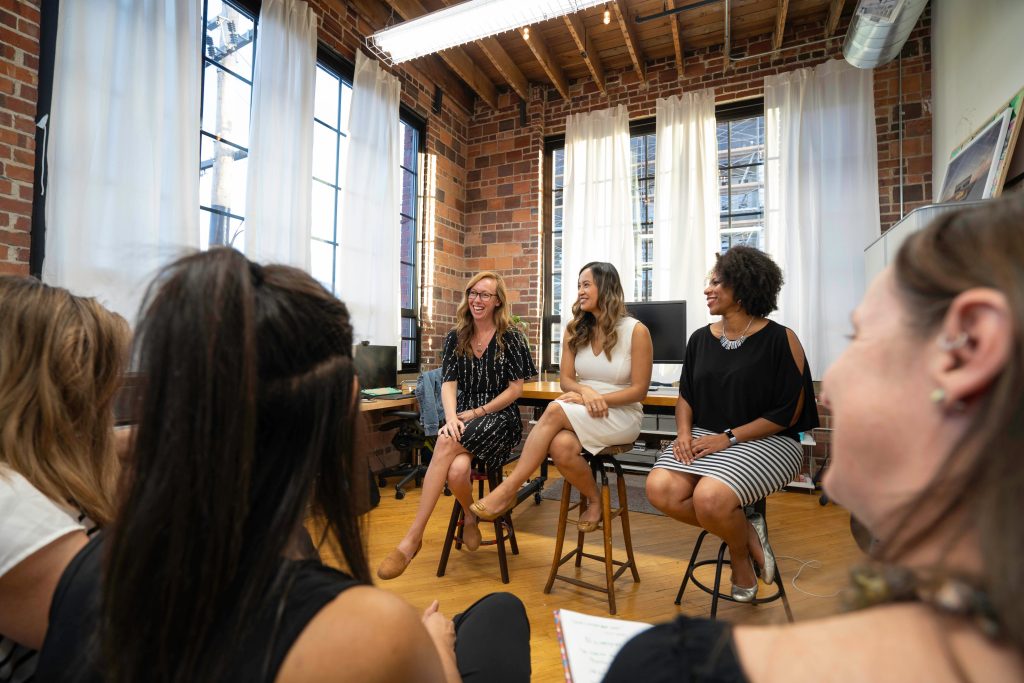Using the Modules

The following information and tutorial will help you understand how to use the Modules found on this website. Click NEXT to continue after you have completed this section.
As you will learn, there are many ways to facilitate a Faith for Rights session. As you use this website, you are free to adapt the content to your needs. The information found here gives an overview of this resource and how to use it.
Preparation is key in successful facilitation of a Faith for Rights session. Whether your session is a short 90 minute event that focuses on one module or a multi-day workshop in which multiple Faith for Rights modules are presented, you will want to be prepared.
The first step is choosing which module to facilitate. Your choice of module will be determined by
- The purpose of your session
- The topic of interest to your participants
- The commitments that are needed in your specific locale.
This website presently contains five of the 18 modules. Module 0 should be utilized with each Faith for Rights session in which new participants are present. Modules 4 -7 are each based on one of the 18 commitments set forth in the Beirut Declaration. Carefully select the module you would like to present.
For each module, facilitators need to prepare and choose the most relevant learning material among the wide range of resources offered in the Faith for Rights toolkit. This website contains links to those resources, as well as ready-made slides that can be utilized during your Faith for Rights session.

All of the Learning Paths and Peer-to-Peer activities within the modules are meant for adaptation to local circumstances. Facilitators are free to modify the activities according to the needs of their group.
Each module contains ready-to-use Learning Paths to aid facilitators as they prepare for their Faith for Rights sessions.
- Each Learning Path focuses on a specific objective.
- Learning Paths contain pre-selected activities presented in a logical sequence.
- Each Learning Path is designed to function as a 90 minute Faith for Rights session.
- Learning paths can simplify preparation for Faith for Rights sessions.

Complete the tutorial
Contextual Tips for Facilitators
The following are helpful tips found in the original Faith for Rights toolkit pdf:
- The #Faith4Rights modules are flexible and require adaptation by the facilitators before their use. Case studies related to peer-to-peer exercises in the 18 modules need to be selected by the facilitators from within the environment where the learning takes place.
- Not all issues raised need to be resolved. This would be an impossible and even a counterproductive target. The aim is rather to enhance critical thinking and communication skills, admitting that some questions could receive many answers, depending on numerous factors.
- Tensions may occur during discussions related to “faith” and “rights”. Most of these tensions are due to human interpretations. Learning sessions are spaces for constructive dialogue in a dynamic process where tensions can be reduced with the help of clear methodologies, including preemptive situation analysis and evidence of positive results in areas of intersectionality between faith and rights.
- When preparing the sessions, facilitators need to factor in the profile, age and backgrounds of participants. Focused attention on the learning objectives can transform tensions into constructive exploration of new ideas.
- Meaningful engagement requires democratically pre-established rules. Facilitators should dedicate time with participants to elaborate these rules together at the outset.
- The time frames suggested in this #Faith4Rights toolkit (highlighted with ) are merely indicative. Facilitators may adapt them freely to suit the needs of their group of participants. The key balance is between respecting the overall timeframe while not cutting short a positive exchange momentum.
- To ensure optimal and sustainable benefit, facilitators may create a “training notebook” for participants during their peer-topeer learning sessions. It would contain a compilation of templates to help participants keep track of what they have learned throughout the programme.
- When technically feasible, facilitators are also advised to project the module under discussion on screen in order to alternate between discussions thereon and showing the audio-visual materials listed in each module or any other items selected by the facilitator themselves.